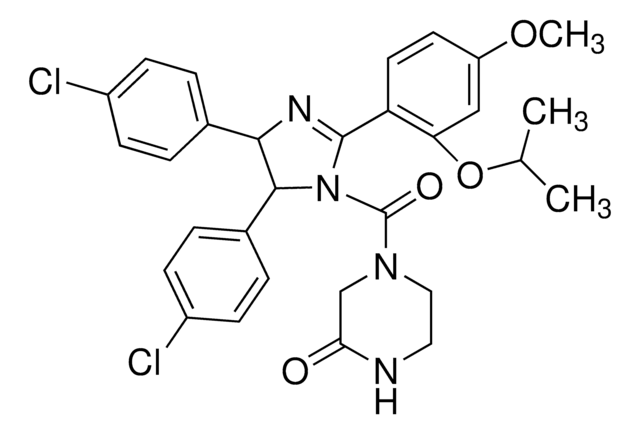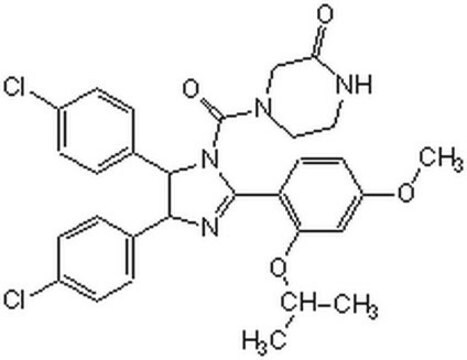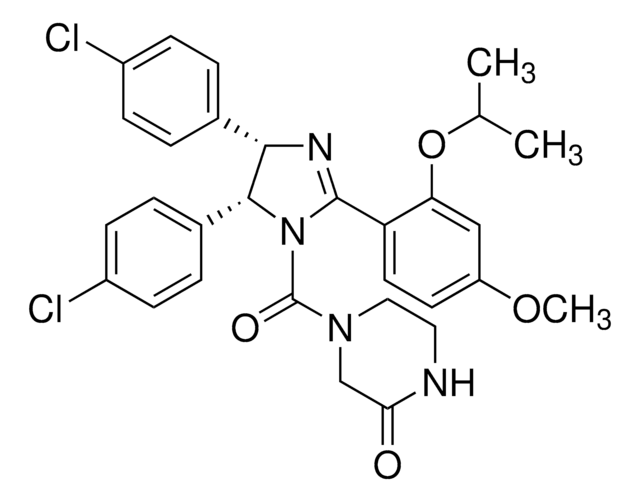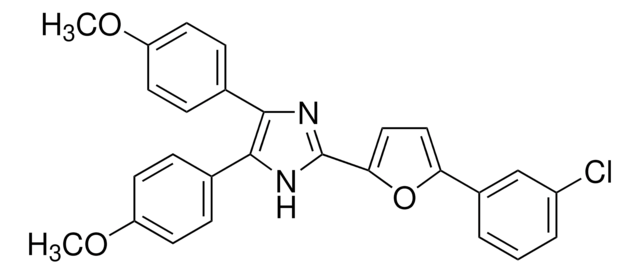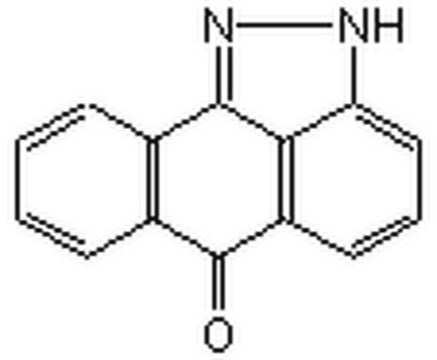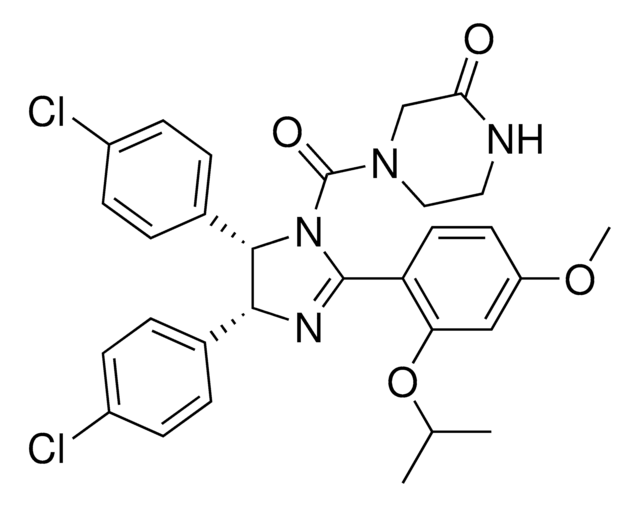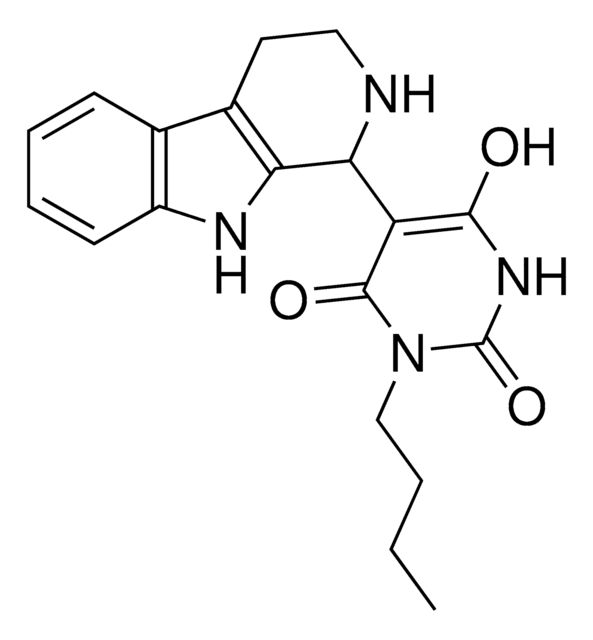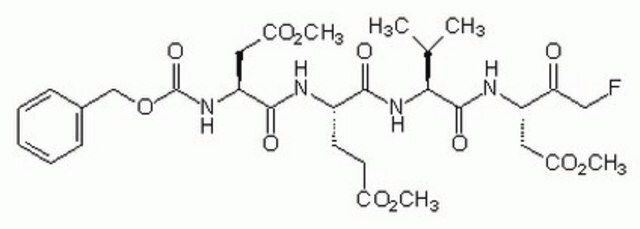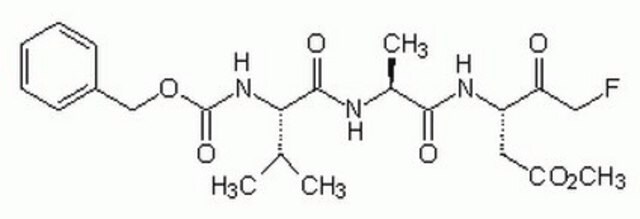444143
MDM2 Antagonist, Nutlin-3, Racemic
The MDM2 Antagonist, Nutlin-3, Racemic, also referenced under CAS 548472-68-0, controls the biological activity of MDM2. This small molecule/inhibitor is primarily used for Cancer applications.
別名:
MDM2 Antagonist, Nutlin-3, Racemic, MDM2 Inhibitor IV
About This Item
おすすめの製品
品質水準
アッセイ
≥98% (TLC and HPLC)
フォーム
solid
メーカー/製品名
Calbiochem®
保管条件
OK to freeze
protect from light
溶解性
DMSO: 25 mg/mL
ethanol: 25 mg/mL
輸送温度
wet ice
保管温度
−20°C
SMILES記法
Clc1ccc(cc1)C2N(C(=NC2c5ccc(cc5)Cl)c4c(cc(cc4)OC)OC(C)C)C(=O)N3CCNC(=O)C3
InChI
1S/C30H30Cl2N4O4/c1-18(2)40-25-16-23(39-3)12-13-24(25)29-34-27(19-4-8-21(31)9-5-19)28(20-6-10-22(32)11-7-20)36(29)30(38)35-15-14-33-26(37)17-35/h4-13,16,18,27-28H,14-15,17H2,1-3H3,(H,33,37)
InChI Key
BDUHCSBCVGXTJM-UHFFFAOYSA-N
詳細
生物化学的/生理学的作用
MDM2
包装
警告
再構成
その他情報
Vassilev, L.T., et al. 2004. Science303, 844.
法的情報
保管分類コード
11 - Combustible Solids
WGK
WGK 3
引火点(°F)
Not applicable
引火点(℃)
Not applicable
適用法令
試験研究用途を考慮した関連法令を主に挙げております。化学物質以外については、一部の情報のみ提供しています。 製品を安全かつ合法的に使用することは、使用者の義務です。最新情報により修正される場合があります。WEBの反映には時間を要することがあるため、適宜SDSをご参照ください。
Jan Code
444143-1.1ML:
444143-1MG:
444143-MG:
試験成績書(COA)
製品のロット番号・バッチ番号を入力して、試験成績書(COA) を検索できます。ロット番号・バッチ番号は、製品ラベルに「Lot」または「Batch」に続いて記載されています。
ライフサイエンス、有機合成、材料科学、クロマトグラフィー、分析など、あらゆる分野の研究に経験のあるメンバーがおります。.
製品に関するお問い合わせはこちら(テクニカルサービス)